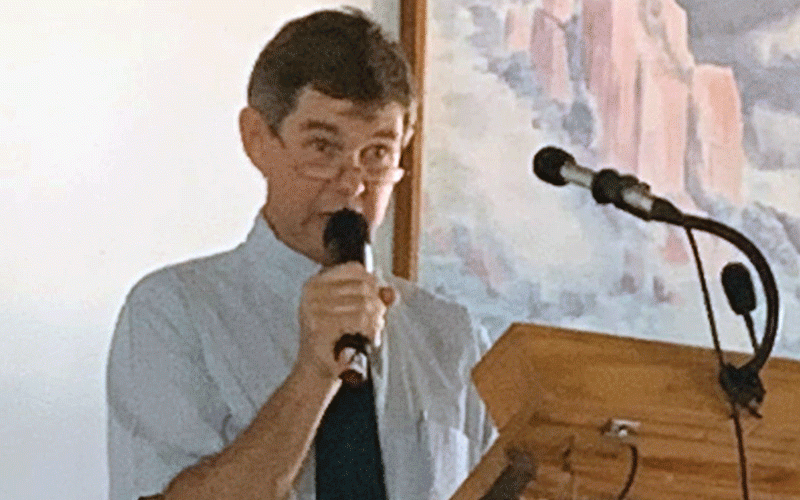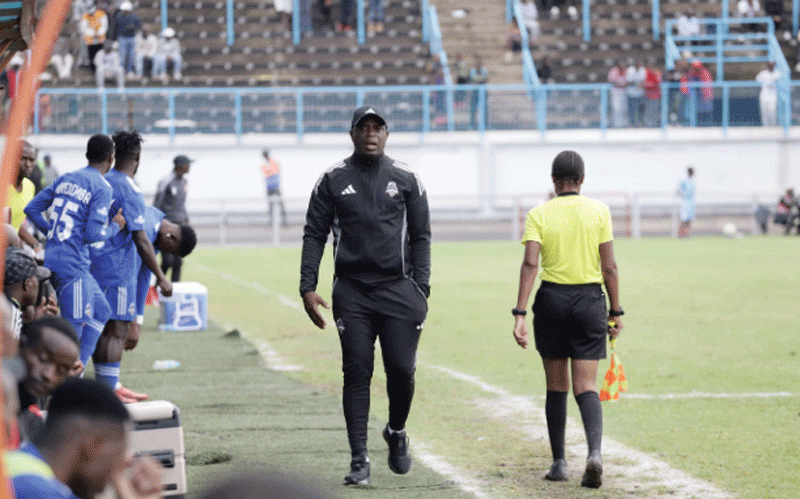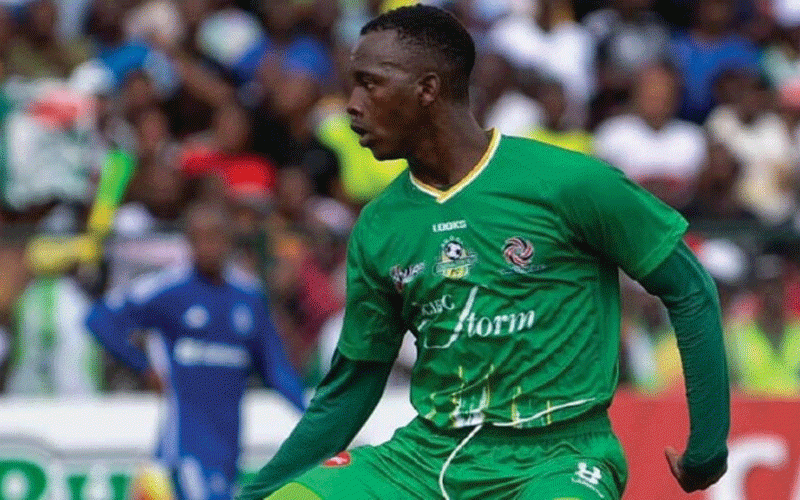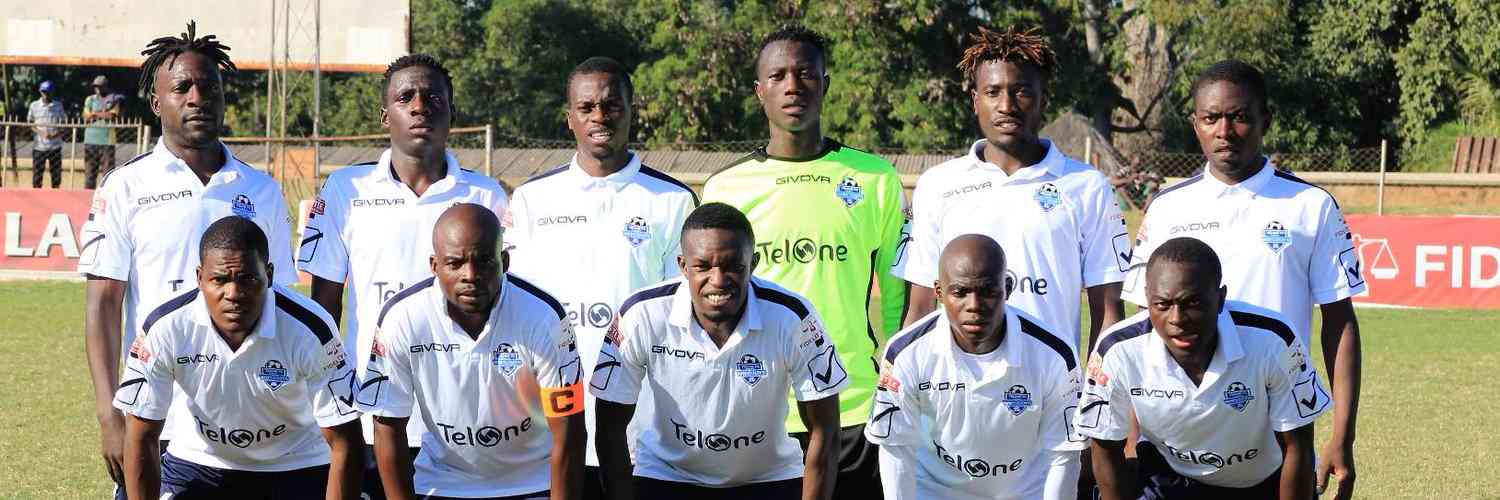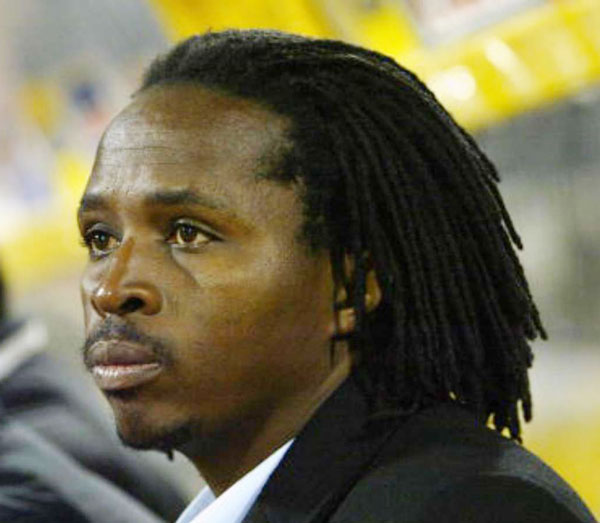
BY SINDISO DUBE
GROWING up and playing football in the grubby streets of Mpopoma high-density suburb in Bulawayo, all Charles Mhlauri wanted to do was to be a footballer of note.
It didn’t therefore come as a surprise when he went on to take a CAPS United team to back-to-back league titles before becoming the second coach to lead the Warriors to the Africa Cup of Nations (Afcon) finals in 2006.
“I don’t think there was a choice — growing up, football was our life,” Mhlauri said in an exclusive interview with The Sports Hub last week.
“Our house was behind the Inyathi Youth Centre in Mpopoma that offered so much sporting activities to local youths. So my time was split between the centre and Lukhanyiso Primary School up to the time I joined Zimbabwe Saints juniors.
“Football was not a matter of life and death, it was much more important than that. I grew up playing soccer up to the time I joined Zimbabwe Saints juniors.
“We played in the streets, money games and all at the youth centre.”
After starting off at Zimbabwe Saints juniors, Mhlauri proceeded to play for Dairibord FC in Bulawayo where prospects of getting an apprenticeship appeared bright. He, however, left Dairibord to join Standard Chartered Bank.
- Chamisa under fire over US$120K donation
- Mavhunga puts DeMbare into Chibuku quarterfinals
- Pension funds bet on Cabora Bassa oilfields
- Councils defy govt fire tender directive
Keep Reading
During his time at the bank he was posted to the Victoria Falls branch where he joined Victoria Falls United, but his playing career was cruelly cut short at the age of 23 due to injury.
“When I got injured and failed to recover, I was asked to coach Victoria Falls United, and the rest is history. I must give credit to Steven Kwashi as he facilitated for me to attend my first coaching course. I was too young at that time. I was only 23 when I was injured, then it was difficult to register for a course at such a young age, but Kwashi, as secretary of the coaches’ association, facilitated my registration,” he said.
Mhlauri then left the bank to pursue other business interests and formed his own club, Amazulu, which went on to be crowned Zimbabwean champions in 2003.
“I later left the bank to pursue my businesses and started my club Amazulu FC in Bulawayo in 1993. I was the coach and owner of the club before I brought in Delma Lupepe as a sponsor in 1994. Gift ‘Soft’ Banda, Godfrey Muzanenhamo, and Ronald ‘Gidiza’ Sibanda were part of the team of players that I started with at AmaZulu in Division 2.
Mhlauri added: “In 1995 I left AmaZulu FC and formed another team, Phinda Mzala. What a team! This team had the likes of Bekithemba Ndlovu now Highlanders FC assistant coach, Gift Lunga Junior, Kelvin Maseko, Richard Choruma, Golding Dube, Malvern Ntini, Mephias Webb, Lindani Sibanda, Dophi Thawi, Witness Sibanda, Abel Sibanda, Mike Zivira and many more,” he narrated.
Mhlauri was invited back at Amazulu in 1996 and stayed there until 2001, winning cups and twice finishing second on the log, which earned him the coach of the year award.
A move to Masvingo United followed in 2002, but only lasted five months before he was lured by Harare giants CAPS United as the assistant to Rahman Gumbo.
Mhlauri’s biggest breakthrough in his coaching career came a year later when he left for Germany in 2003 for a training programme at the University of Leipzig, which was facilitated by the late former Warriors coach Reinhard Fabisch and former CAPS United owner Twine Phiri.
“When I came back, I then took over from Fewdays Musonda, who was now the head coach at CAPS United. Rahman had long moved on. He was now the head coach at Motor Action. The team was not doing well. I had to do a root and branch overhaul,” Mhlauri said.
“I started the rebuilding exercise and brought Witness Munkuli and Milos Phiri from Wankie. I brought back Ashley Rambanepasi, who was on his way to Shabanie as he was deemed excess baggage at that time. I managed to get Laughter Chilembe and Ian Bakala from Zambia. From Malawi, I got Haji Tambala and Joseph Kamwendo and we managed to get Cephas Chimedza from Dynamos.”
Mhlauri’s rebuilding of CAPS United suffered a major blow as tragedy struck early in 2004, when the club’s trio of Blessing “Yogo Yogo” Makunike, Gary Mashoko and Shingirai Arlon perished in an accident when the car they were travelling in crashed into a pillar on a bridge near Norton.
The dreadlocked coach said he was devastated as he had plans to build his squad around the trio due to their experience at the club.
“These were some of the few surviving players from previous years, and I was trying to rebuild the team around them. It was Yogo Yogo, Lloyd Chitembwe, Artwell Mabhiza and Shingi who had survived to play on from the 1996 squad.
“They all had green blood and I had planned to have them as the spine of the team. It was a tough process to overcome the grief and loss. To make matters worse, the team bus was among the first vehicles to arrive at the scene of the accident. For the players to witness their friends perish in such a horrific way and feel so hapless was traumatic. We had to get the players to go through counselling, and it was a difficult road to recovery,” Mhlauri said.
The trio’s tragic death galvanised the remaining CAPS United squad into a formidable squad that went on to win the 2004 league title, losing only one match along the way.
CAPS United also successfully defended their title in 2015 as Mhlauri also doubled as the national team coach. That same year Mhlauri led the Warriors to the Cosafa Cup title and qualification for the 2016 Afcon finals in Egypt.
“After my Warriors tenure, I got an invitation to run football camps in the USA at top universities such as Yale, Dartmouth, Wesleyan, Bowdoin and Franklin Pierce, among others. That’s how I went to the USA and eventually coached college soccer before getting an offer to be director of coaching for a club. I have since formed my academy where I train coaches, players and run camps.”
The celebrated coach said the Warriors have a good chance of doing well at this year’s edition of Afcon finals hosted by Egypt.
“I think we have good chances like any other team. The fact that we qualified means we are good enough to compete at the next level. I am confident that every player and coach wants to compete in the Africa Cup of Nations,” he said.
“During my time, the challenge was to get proper preparations and especially playing against good competition. I believe with government support it will be doable, but as the corporate world is struggling given the hyperinflation,” Mhlauri said.
Commenting about the current state of local football, Mhlauri encouraged administrators to keep abreast with modern trends by ensuring that the domestic game moves forward.
“The game is always moving forward in line with technological and sports science advancement. Fifa and Uefa technical reports clearly show that the game is moving forward the world over. As a country, we need to improve on coach education, infrastructure and professionalism.
“The socio-economic climate is difficult for the ordinary man in the street and that results in less and fewer spectators. The numbers going down in the stadiums are, to a great extent, reflective of the working population, not necessarily the game. “Football growth and development is, to some extent, related to the socio-economic situation on the ground,” he said.
Away from football, the United States-based coach runs a successful poultry farm in Bulawayo, which houses more than 25 000 chickens and produces thousands of eggs on a daily basis.
He, however, acknowledged that the business has not been spared the effects of the harsh economic conditions prevailing in the country.
“We acquired a plot in Bulawayo and rolled out an agricultural business, which we named Benabour (Pvt) Ltd. Our business specialises in egg production. The economic situation is hard, but we are trying, feeds are going up daily, and vaccinations are being sold in foreign currency yet we sell eggs in bond notes and RTGS$.
“This presents a genuine challenge to the viability of the company. Bulawayo’s economy is depressed, and we desire to contribute to the city through agri-business and revive the city’s economy. Currently the project employs 14 families in Bulawayo,” he said.

